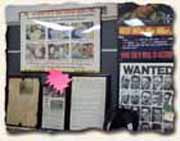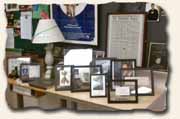Einstein… Smarter than a 5th grader?
June 9, 2023 by GuyHeilenman · Leave a Comment
To even ask such a question seems a bit absurd, but let’s double it. What about a 10th grader?
As reported on the front page of the May 16, 1952 issue of The New York Times, the 70-something “genius” Albert Einstein was put to the test. How did he do? He received an A+ for kindness, and, using today’s measuring stick where everyone is a winner, he posted another high score for effort. As for his answer… go to the NYT link above to find out if he was able to go toe-to-toe with a question given to a group of 15-year-olds.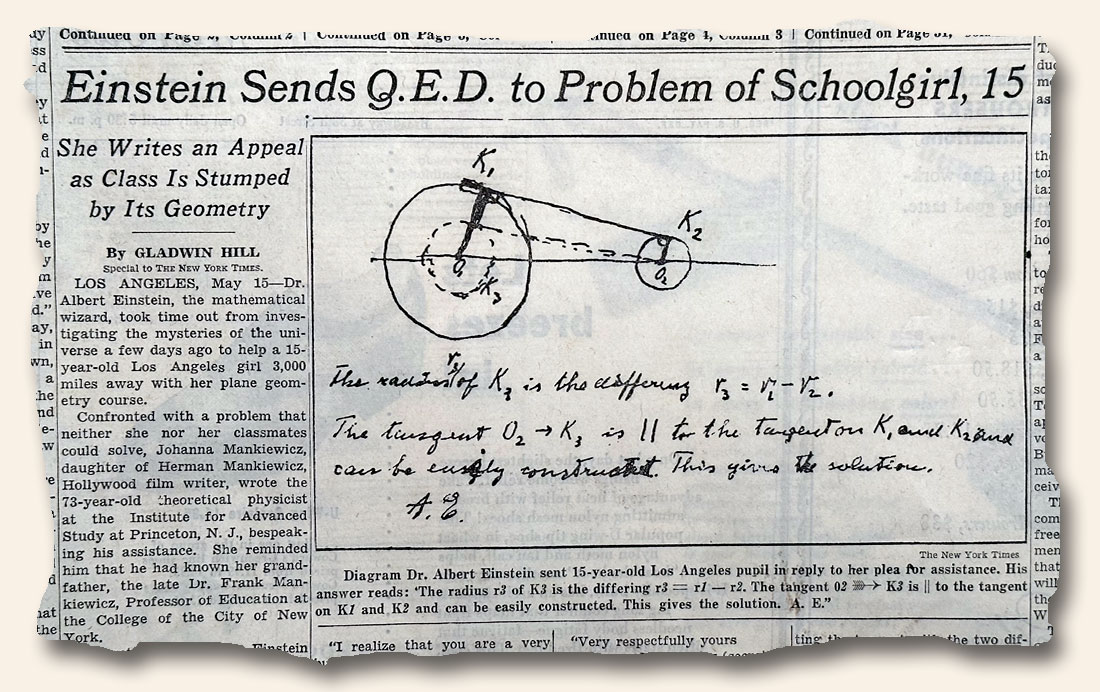
Spoiler alert! In all fairness Dr. Einstein, rumor has it the question was listed under the “Challenging Questions” portion of their assignment.
I’m New Here: Week Twenty-Eight…
August 29, 2019 by Stephanie Williams · Leave a Comment
 It’s probably obvious by now that histories of people are the most intriguing aspect of life to me and it helps me when I enter into the customer service aspect of this job. Each longtime collector, or birthday dabbler, or train-of-thought/rabbit trail follower (I made that term up) is led or driven by his or her own tale. And I am privileged to hear about the whys and wherefores of the quests.
It’s probably obvious by now that histories of people are the most intriguing aspect of life to me and it helps me when I enter into the customer service aspect of this job. Each longtime collector, or birthday dabbler, or train-of-thought/rabbit trail follower (I made that term up) is led or driven by his or her own tale. And I am privileged to hear about the whys and wherefores of the quests.
This week I worked with an Earth Science teacher who has been collecting early records of hurricanes, tidal surges and solar eclipses with an intensity I can’t help but appreciate, even though I could barely follow his pontificating. It makes me happy that he is teaching, and I hope his enthusiasm is contagious to at least one of the jaded high schoolers trudging through the eleventh grade of our system of education. A writer in Manhattan checked in five times this week, and added titles that were absolutely vital to the history she is compiling and I have a mental image of scraps of paper covered in scribbles from which she cross checks and matches our latest catalog offerings. Her exclamations of delight are always tinged with the “I really shouldn’t…” tone that most dieters adopt.
Preferences aside, details really matter in this job. Enthusiasm over stories within a volume cannot excuse my neglect to mark the proper location for return. With thirty-one rows of interior shelving that is fifteen feet high and thirty feet long, a misfiled collection may never be found again, however valuable the issues or concentrated the search. Similarly, folks who ordered a hundred times don’t appreciate a letter that welcomes them as a new collector, and our six-digit item codes can’t have a single transposition without becoming wrong. By this error, I did not locate a New York Tribune from the Civil War period but a Scientific American from January 24, 1891. Tracing my mistake to the original point at which I veered from the straight and narrow path of accuracy, I ended up sitting down to a cup of tea and a technical description of the “Electrical Base Ball Bulletin.” It caught my eye because we are located in “The Birthplace of Little League” and host the annual World Series every August. As with the Science instructor, the technical jargon jumbles me a bit so I cannot begin to comprehend how the contraption worked. However, the description is clearly an invention of Mr. S. D. Mott of Passaic, New Jersey from 129 years ago, that was possibly the precursor to the system for the modern scoreboard display.
So, there you have it.
In the world of Rare and Early Newspapers, even a wrong turn (in a timely fashion) can land me in a place I learn something new.
Historic Newspapers in the classroom…
August 13, 2012 by GuyHeilenman · 2 Comments
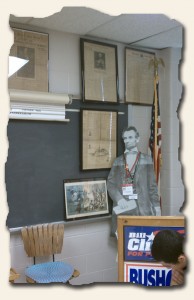 We received the following note from one of our collector friends and thought our readers might enjoy his note:
We received the following note from one of our collector friends and thought our readers might enjoy his note:
Dear Tim Hughes and Rare Newspapers:
and rote memorization of facts. Rather, I teach that history is the interpretation of the present as viewed through a prism of past human experiences. I encourage my students to realize that “historical figures” were once living breathing human beings. They may be gone, but the life lessons that they left behind can still empower us to improve our lives and to better understand our world. I believe that “hand’s on learning” provides students with the most ownership of their knowledge. For this reason, my classroom is a museum filled with dozens of historical artifacts and framed newspapers. For example, when studying the Lincoln assassination, I allow students to hold a tear-stained Philadelphia Inquirer from April 1865. My students have even had the opportunity to re-‐enact the 2000 Florida Presidential election on an actual Dade County voting machine. As a practitioner of Problem Based Learning, I believe giving students access to actual historical documents and relics makes the lesson a truly authentic learning experience. I want my students to realize that history is a never-‐ending story of human triumphs and tragedies. It is a story to which they are contributing. That is a powerful lesson.
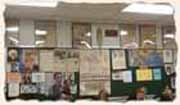
Don’t tell the kids…
November 27, 2010 by GuyHeilenman · Leave a Comment
An article in the August 14, 1840 issue of The Citizen Soldier, Vermont, yields at least one perspective on how to be a successful student. Kids, please don’t try this at home. What does the phrase “having cold feet” mean anyway?
Featured websites – RagLinen.com
March 11, 2010 by GuyHeilenman · Leave a Comment
 From time to time we like to take a look at various websites which may enhance our Timothy Hughes Rare & Early Newspapers‘ members collecting experience. Todd Andrlik’s “Rag Linen“, is such a site. It describes itself foremost as “…an educational archive of rare and historic newspapers, which serve as the first drafts of history and the critical primary source material for historians, authors and educators.” A sample of Rag Linen’s posts on the corresponding blog include:
From time to time we like to take a look at various websites which may enhance our Timothy Hughes Rare & Early Newspapers‘ members collecting experience. Todd Andrlik’s “Rag Linen“, is such a site. It describes itself foremost as “…an educational archive of rare and historic newspapers, which serve as the first drafts of history and the critical primary source material for historians, authors and educators.” A sample of Rag Linen’s posts on the corresponding blog include:
- A Short Narrative of the Horrid Massacre in Boston
- B. Franklin’s Confession to Leaking Hutchinson’s Letters
- Paul Revere’s “View of the Year 1765″
- The Stamp Act Teaser of 1764
- The Great Scottish Witch Hunt of 1661-1662
- The 12 Letters That Preceded The Burr-Hamilton Duel
- The Original Flag of the Thirteen United States
- Three Cheers for Lincoln’s Gettysburg Address
- An Unlikely Spy Embedded as a Newspaper Printer
- The Real First President of the United States
Rag Linen also has useful information on the History of Newspapers, the Condition & Preservation of newspapers, and more. Well done Todd. Thanks for your contributions to the rare newspapers community.



